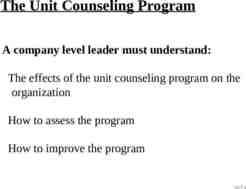additionally if earlier when later because therefore Conjunctions
8 Slides273.00 KB

additionally if earlier when later because therefore Conjunctions and Connectives with Words that link parts of text and furthermore which but however

A conjunction is a joiner, a word that connects parts of a sentence. There are three basic types of conjunctions. coordinating conjunctions used to connect two independent clauses, subordinating conjunctions used to connect the dependent clause and the rest of the sentence, and correlative conjunctions which always travel in pairs, and join sentence parts that should be treated as equal.

COORDINATING CONJUNCTIONS Coordinating conjunctions may join single words, or they may join groups of words, They always join similar elements: e.g. subject subject, verb phrase verb phrase, sentence sentence. The seven coordinating conjunctions in English are: FOR AND NOR BUT OR YET SO

EASY REMINDER An easy way to remember these six conjunctions is to think of the word FANBOYS. Each of the letters in this somewhat unlikely word is the first letter of one of the coordinating conjunctions. Among the coordinating conjunctions, the most common, of course, are AND, BUT and OR.

Conjunctions are used to join sentences or clauses together. SUBORDINATING CONJUNCTIONS A subordinating conjunction is a word which joins together a dependent clause and an independent clause. Common subordinating conjunctions: BECAUSE, AS, SINCE, SO, ALTHOUGH, (even) THOUGH, WHEREAS, WHILE, AFTER

Correlative CONJUNCTIONS Some conjunctions combine with other words to form what are called correlative conjunctions. They always travel in pairs, joining sentence parts that should be treated as equal. Common Correlative Conjunctions: both . . . and not only . . . but also not . . . but either . . . or neither . . . nor whether . . . or as . . . as

Conjunctions are used to join sentences or clauses together. Susie saw a dog. The dog only had three legs. Susie saw a dog, which only had three legs.

Conjunctions are used to join sentences or clauses together. Sarah ran away from the dog. The dog barked at Sarah. Sarah ran away when the dog barked. Sarah ran away because the dog barked. Sarah ran away until the dog barked.






